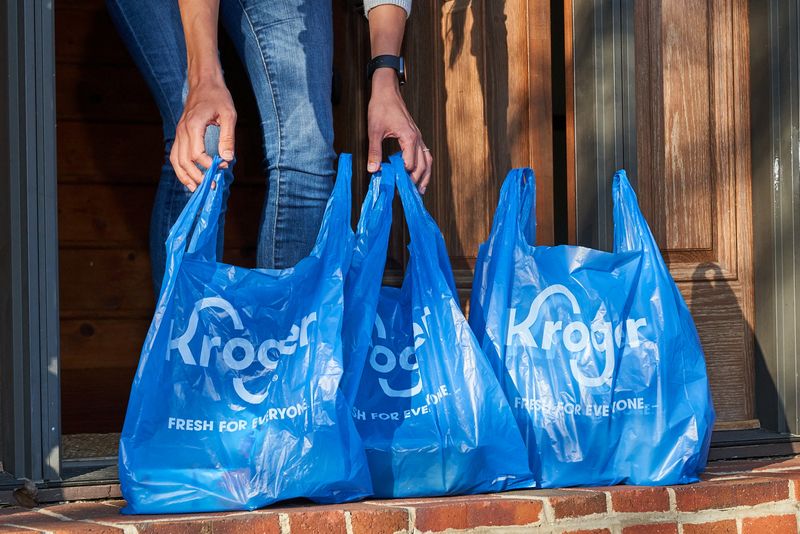Investing.com’s stocks of the week
Quiver Quantitative - The Federal Trade Commission's move to block the $25 billion merger between Kroger (NYSE:KR) and Albertsons (NYSE:ACI) is a pivotal moment in U.S. antitrust enforcement. This lawsuit, filed in Oregon, highlights the FTC's concerns about potential negative impacts on food prices and union workers' bargaining power. This action reflects a broader trend in the Biden administration's antitrust policy, increasingly scrutinizing mega-mergers for their potential to harm both consumers and workers.
The heart of the FTC's argument is that this merger, which would unite the largest and second-largest U.S. supermarket operators, could lead to higher grocery prices and weaken labor conditions. This claim gains relevance in the context of Americans currently spending a significant portion of their income on food, a situation exacerbated by overall inflation. The FTC's stance also indicates a novel emphasis on labor issues in antitrust analysis, considering how mergers might create employers with excessive leverage over workers.
Market Overview: -Kroger down nearly 2%: Stock price falls on FTC lawsuit news. -Albertsons up 0.6%: Modest gain despite regulatory uncertainty. -Grocery sector: Potential impact on future consolidation efforts due to increased scrutiny.
Key Points: -FTC sues to block Kroger-Albertsons merger: Citing concerns over higher food prices, reduced competition, and weakened union bargaining power. -Companies say deal addresses concerns: Proposed divestiture of hundreds of stores deemed inadequate by FTC. -Increased antitrust scrutiny: Merger challenge reflects broader focus on labor and consumer welfare in merger reviews. -Court battle and potential impact: Legal battle to determine impact on competition and consumer choices.
Looking Ahead: -Court decision: Ruling on FTC's request for preliminary injunction to halt the merger. -Potential divestitures: Number and location of stores to be divested if the merger goes through. -Impact on workers: Uncertainties surrounding union negotiations and potential job losses. -Future of grocery consolidation: Implications for industry consolidation efforts in the face of heightened scrutiny.
From Kroger and Albertsons' perspective, the merger is a strategic move to better compete with retail giants like Walmart (NYSE:WMT) and Amazon (NASDAQ:AMZN). They argue that the deal would enhance their scale, technology, and negotiating power with suppliers, ultimately benefiting consumers. However, the FTC remains unconvinced, describing their plan to divest hundreds of stores as insufficient to address antitrust concerns.
The outcome of this lawsuit will be significant not only for Kroger and Albertsons but also for the future of antitrust enforcement in the U.S. It sets a precedent for how labor considerations are integrated into antitrust cases and how the government views competition in the evolving grocery market.
This article was originally published on Quiver Quantitative
